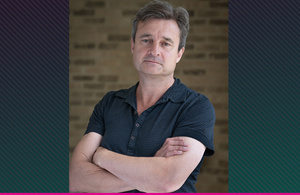Marcus Boyle appointed as new Chair of Gambling Commission
Press release
Culture Secretary Oliver Dowden has appointed Marcus Boyle as the next chair of the Gambling Commission for a term of five years.

- Culture Secretary Oliver Dowden appoints Marcus Boyle as new chair of the gambling regulator
- New Chair will provide fresh impetus for the Commission ahead of the Gambling Act Review White Paper
Culture Secretary Oliver Dowden has appointed Marcus Boyle as the next chair of the Gambling Commission for a term of five years.
Marcus joins the Commission with extensive change management experience across both public and private sector bodies. Most recently, he led the development and implementation of a major programme of reform at a public sector body, driving change based on his robust financial management and governance capabilities.
Marcus will utilise his background in finance in his new role as Gambling Commission Chair. He has been an equity partner for two leading global professional services firms including most recently at Deloitte, where he served as Board Member, Chief Strategy Officer and Chief Operating Officer. He is also Chair of the British American Drama Academy.
Culture Secretary Oliver Dowden said:
This is an important moment for the Gambling Commission as we fulfill our manifesto commitment to undertake the first major review of gambling laws in 15 years.
New leadership will bring a new direction and focus for the Commission and I very much look forward to working with Marcus.
His expertise will be invaluable as he steers the Commission into a new era of gambling regulation fit for the digital age.
Marcus takes over from Bill Moyes who was appointed in 2017. His appointment will take effect from 5 September 2021.
The post is remunerated at £55,000 per annum. The appointment has been made in accordance with the Governance Code for Public Appointments. It is a requirement of the Code that political activity by those appointed is declared. Marcus Boyle has declared no such political activity.
The government is considering the role and resources of the Gambling Commission as part of its Gambling Act Review, a manifesto commitment, which will consider the need to balance the enjoyment people get from gambling with the right regulatory framework and protections.
Online restrictions and marketing are among the areas being looked at to examine in detail how gambling has changed over the past 15 years.
ENDS
Notes to editors:
- The Gambling Act Review Call for Evidence closed on 31 March and the government intends to publish a white paper before the end of the year.
- Marcus Boyle will hold the post of Chair of the Gambling Commission from 5 September 2021 to 4 September 2026.
- Marcus has a track record of delivering transformational change for some of the world’s foremost organisations – both private and charitable. He served as a Board member, Chief Strategy Officer and Chief Operating Officer at Deloitte and resigned as a Partner in November 2020. As a Consulting Partner, he supported the highest profile clients on transformation programmes, turnaround strategies, operational reviews, cost reduction initiatives and technology implementations. He also led discussions on the topic of audit reform with the various regulators and stakeholders. He is a qualified accountant.
Published 2 September 2021
